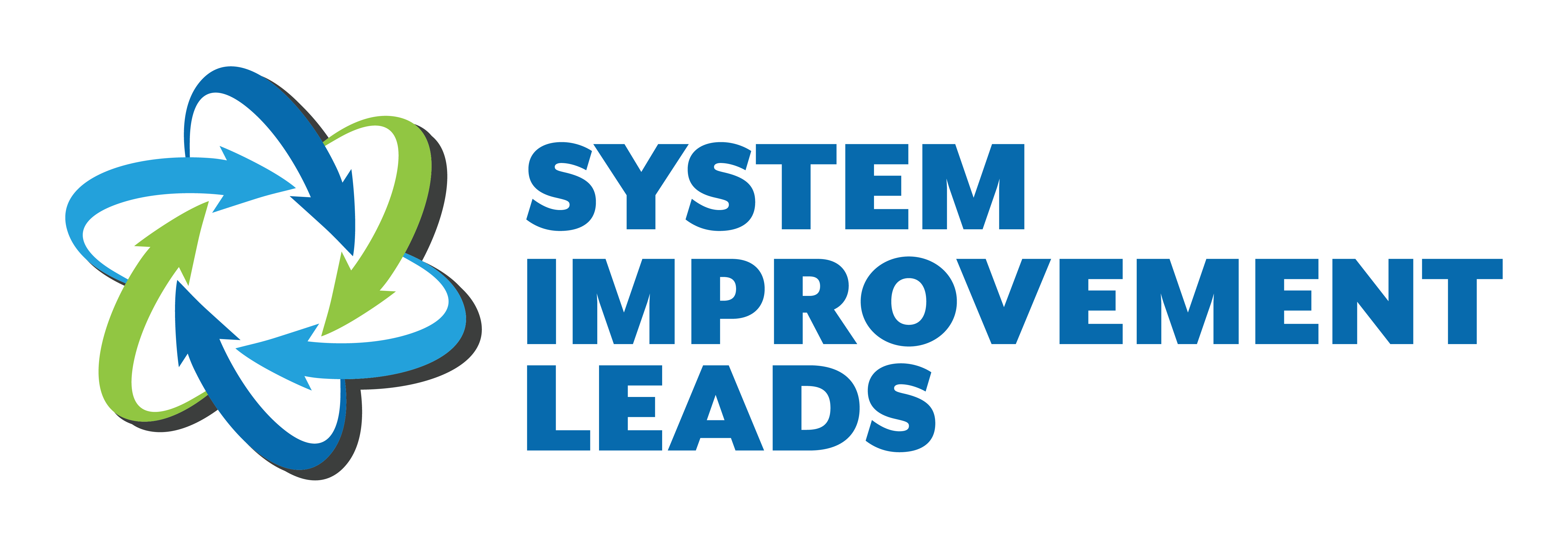
Strategies That Work
Envisioning a Path to Graduation: Student Four Year Academic Plan
Envisioning a Path to Graduation: Student Four Year Academic Plan highlights Calexico Unified School District’s strategy to increase high school graduation rates among students with disabilities. It outlines the urgent challenge—only 56% of students with disabilities graduated in 2021—and presents the district's solution: a structured, collaborative four-year academic plan supported through California’s Compliance and Improvement Monitoring (CIM) process and guided by System Improvement Leads (SIL). The document details key implementation strategies, such as involving counselors, case managers, students, and families in annual reviews and adjustments, along with proactive credit monitoring. By adopting this strategy, Calexico USD increased graduation rates for students with disabilities by 31% in just two years.
Strategies That Work
Laying the Foundation for Graduation Success: Transition IEP Meetings
Establishing a strong foundation for high school success, this tool supports districts in holding Transition IEP Meetings before students with disabilities enter 9th grade. Developed through the SIL Graduation Network as part of the Compliance and Improvement Monitoring process, the strategy ensures middle and high school teams collaborate early to align supports, review graduation requirements, and create a 9th grade schedule tailored to the student’s needs. By making transition meetings a structured, proactive step in the IEP process, participating districts saw measurable results, collectively increasing graduation rates for students with disabilities.
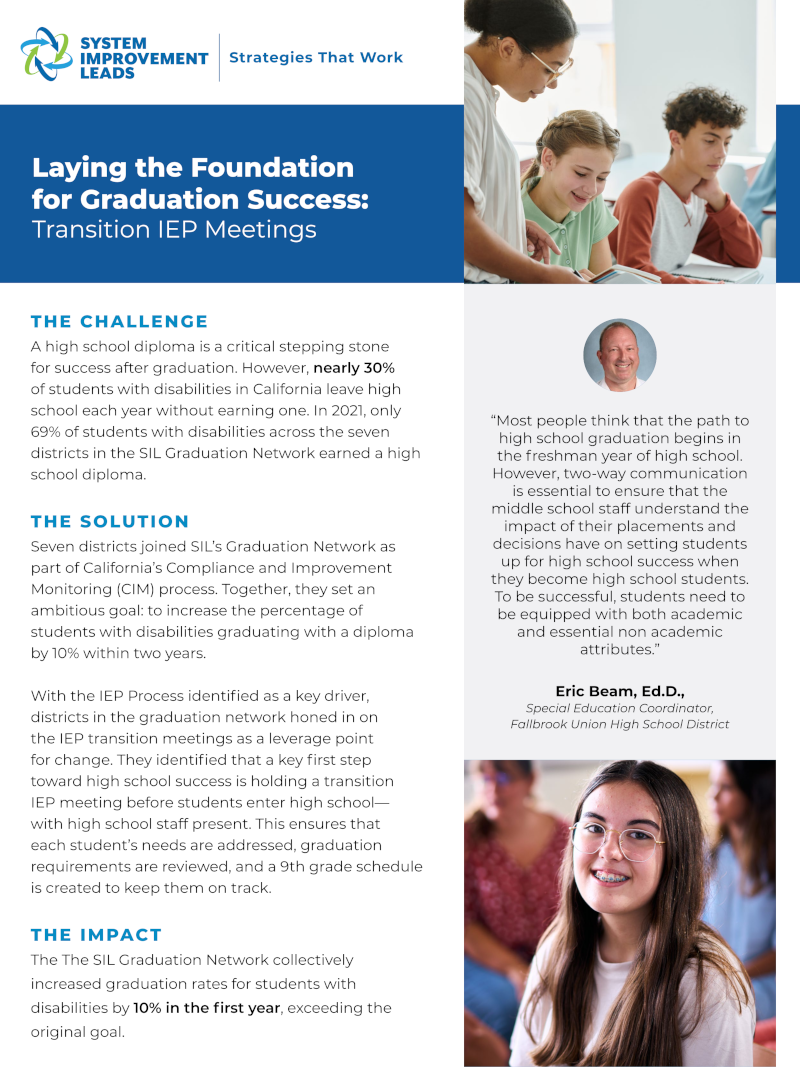
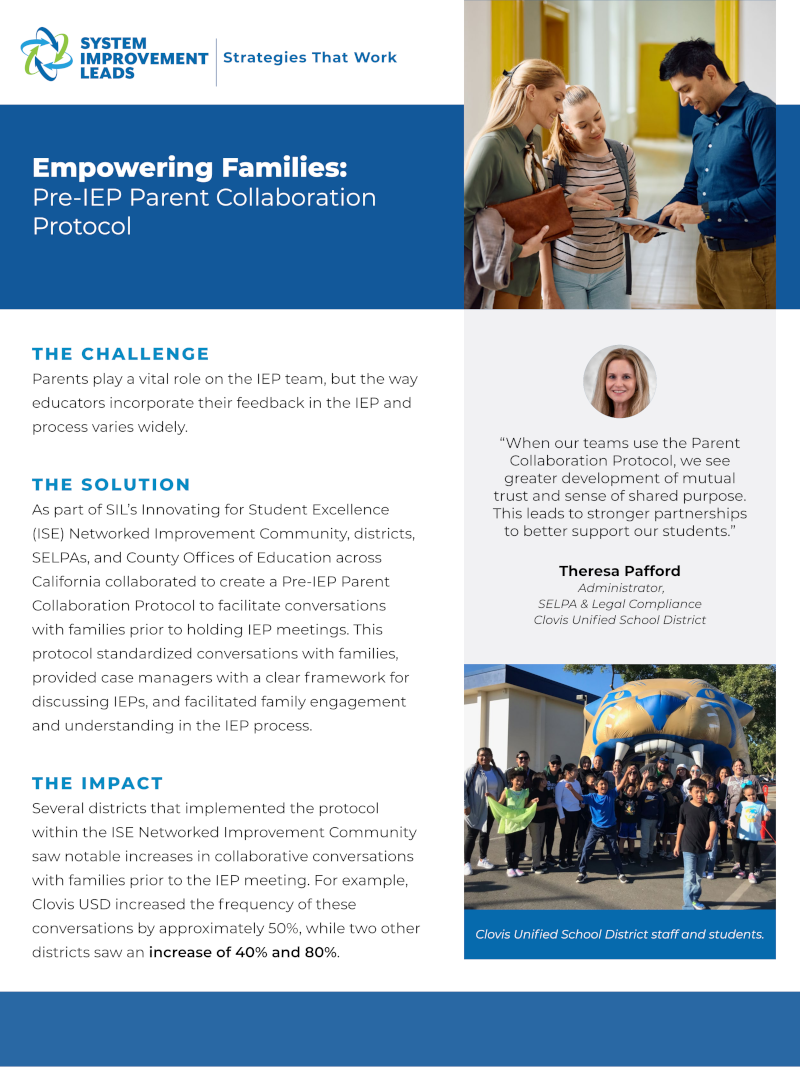
Strategies That Work
Empowering Families: Pre-IEP Parent Collaboration Protocol
Strengthening family engagement in the IEP process, this protocol equips educators with a clear, structured approach for holding meaningful conversations with parents before IEP meetings. Developed through SIL’s Innovating for Student Excellence (ISE) Networked Improvement Community, the tool addresses inconsistencies in how parent input is gathered and used. It guides case managers in building trust, asking purposeful questions, and personalizing IEP documents based on family insights. Districts that implemented the protocol, such as Clovis USD, saw significant increases in pre-IEP collaboration, with some reporting up to an 80% rise in these critical conversations, resulting in more student-centered and collaborative planning.
Strategies That Work
Reducing Chronic Absenteeism: Parent Collaboration Protocol
The Parent Collaboration Process Implementation Tool was developed by Corning Union Elementary School District through California’s CIM process to address high chronic absenteeism rates among students with disabilities. With over half of these students chronically absent in 2022, the district joined SIL’s Attendance Network and created a structured, proactive communication process between schools and families. This tool outlines step-by-step strategies for building relationships, identifying attendance barriers, and collaboratively developing support plans. Emphasizing empathy, education, and consistent follow-up, the approach led to a 38% reduction in chronic absenteeism, surpassing the district’s original goal.
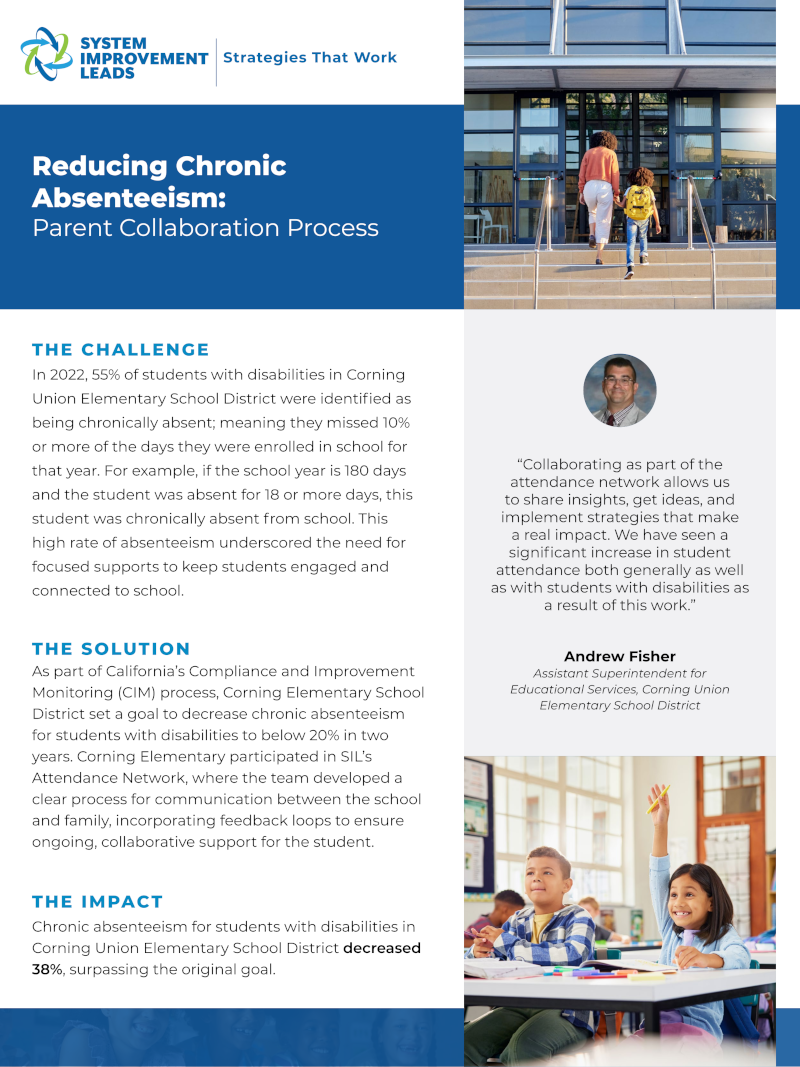
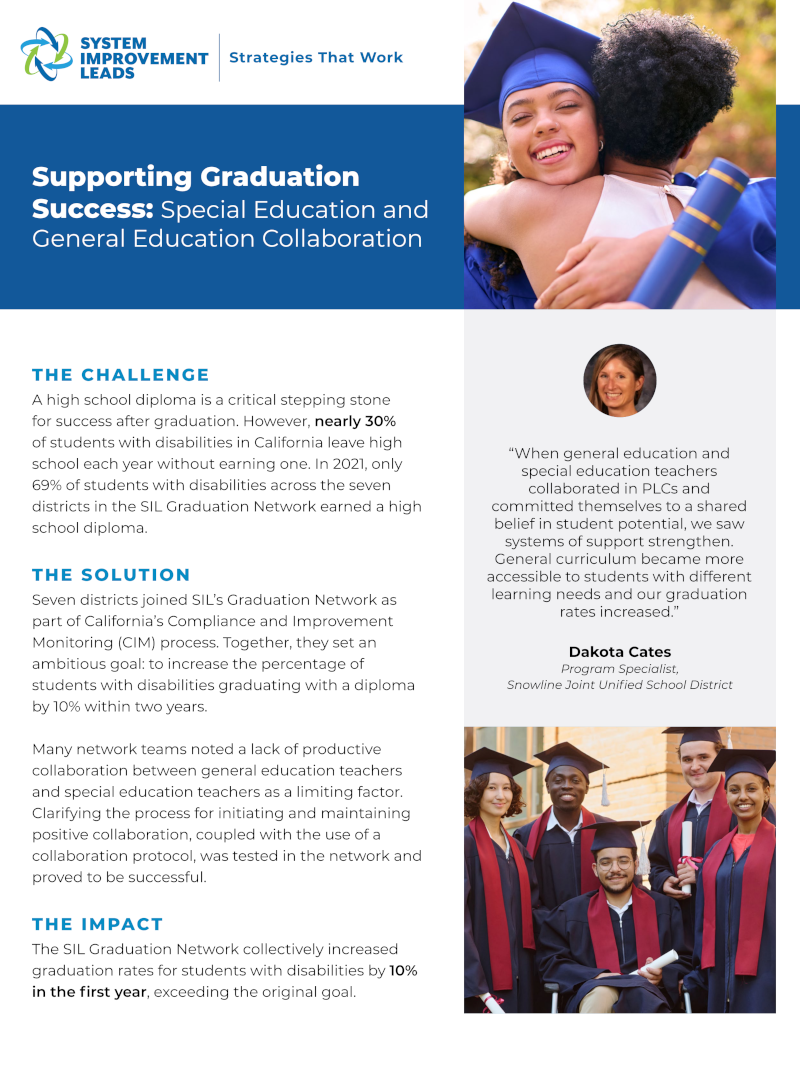
Strategies That Work
Supporting Graduation Success: Special Education and General Education Collaboration
The Special Education and General Education Collaboration Implementation Tool was developed through the SIL Graduation Network as part of California’s CIM process. This tool supports districts in fostering effective collaboration between general and special education teachers, a key factor identified as limiting student success. It includes a step-by-step initiation process and a structured collaboration protocol to guide joint planning, problem-solving, and follow-up. By clarifying roles and establishing routines for meaningful collaboration, the tool helps teams align efforts to improve graduation outcomes for students with disabilities.
Strategies That Work
Empowering Every Student to Graduate: Student On-Track Self-Monitoring
Find out what happened when seven districts joined the SIL Graduation Network through California’s Compliance and Improvement Monitoring (CIM) process in order to improve graduation rates for students with disabilities. One key strategy was implementing the “Am I On Track?” student self-monitoring form, which helped students take ownership of their progress. Through focused collaboration and monitoring, the network exceeded its goal, achieving a 10% increase in graduation rates in just one year.
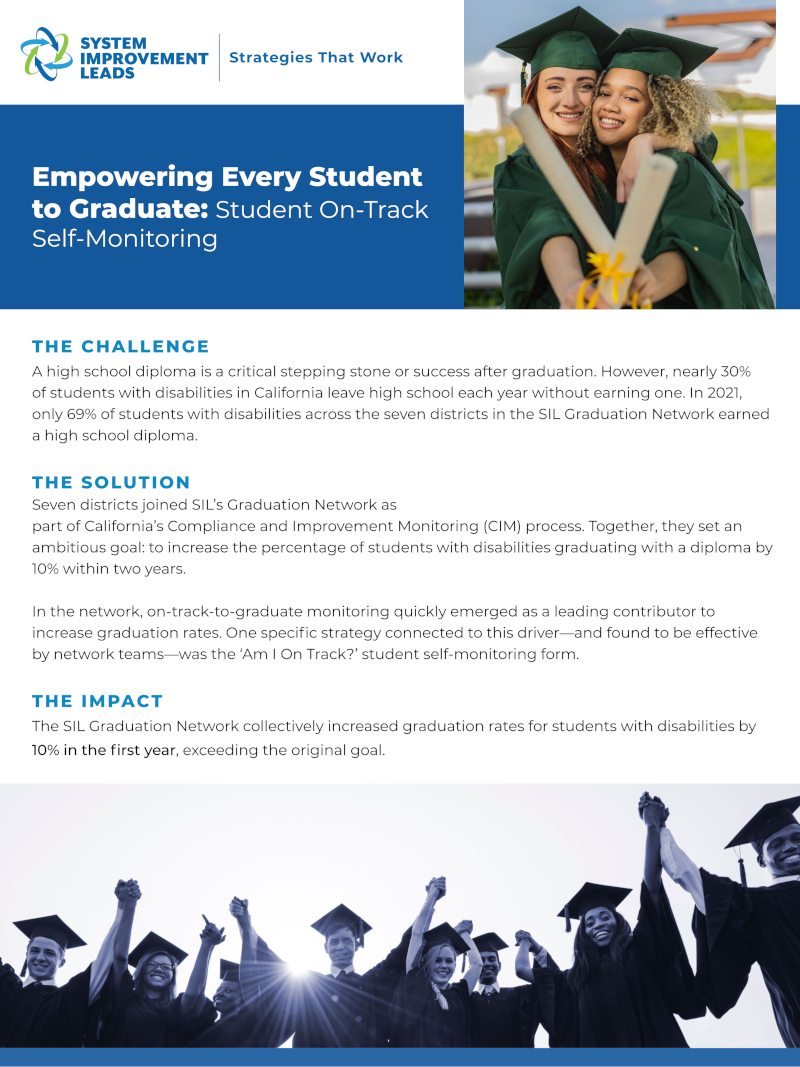
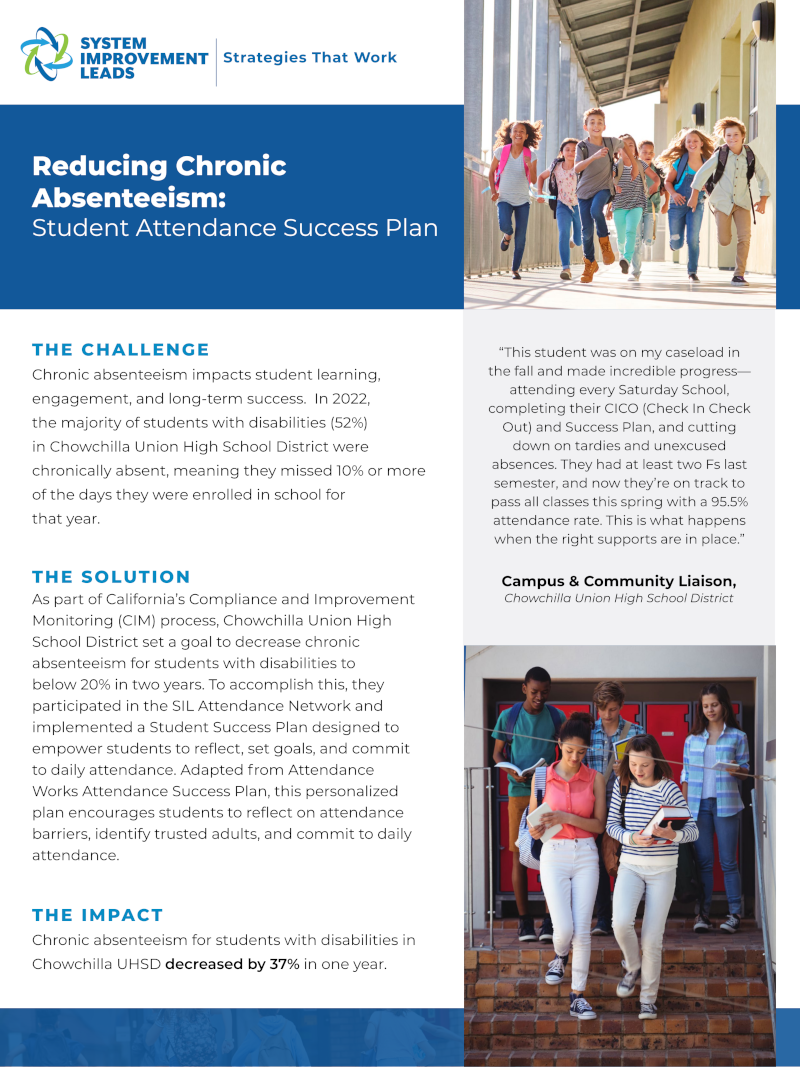
Strategies That Work
Reducing Chronic Absenteeism: Student Attendance Success Plan
To address high rates of chronic absenteeism among students with disabilities, Chowchilla Union High School District participated in California’s Compliance and Improvement Monitoring (CIM) process and joined the SIL Attendance Network. They implemented a personalized Student Success Plan, adapted from Attendance Works, which supports students in reflecting on attendance barriers, setting goals, and identifying trusted adults to help them stay engaged. As a result of these targeted efforts, the district achieved a 37% decrease in chronic absenteeism for students with disabilities within one year.
Strategies That Work
Removing Barriers to Graduation: Student-Centered Scheduling and On Track to Graduate Monitoring
Explore how Anaheim Unified High School District successfully increased graduation rates for students with disabilities by over 10% in just two years. This success story, developed in partnership with the SIL Transforming the Journey to Graduation Network, highlights key strategies, including a student-centered scheduling process and monthly data reviews. This resource provides actionable steps and tools—such as the Student Scheduling Fly Up Form and the On Track to Graduate Monitoring Checklist—to help districts replicate these improvements.
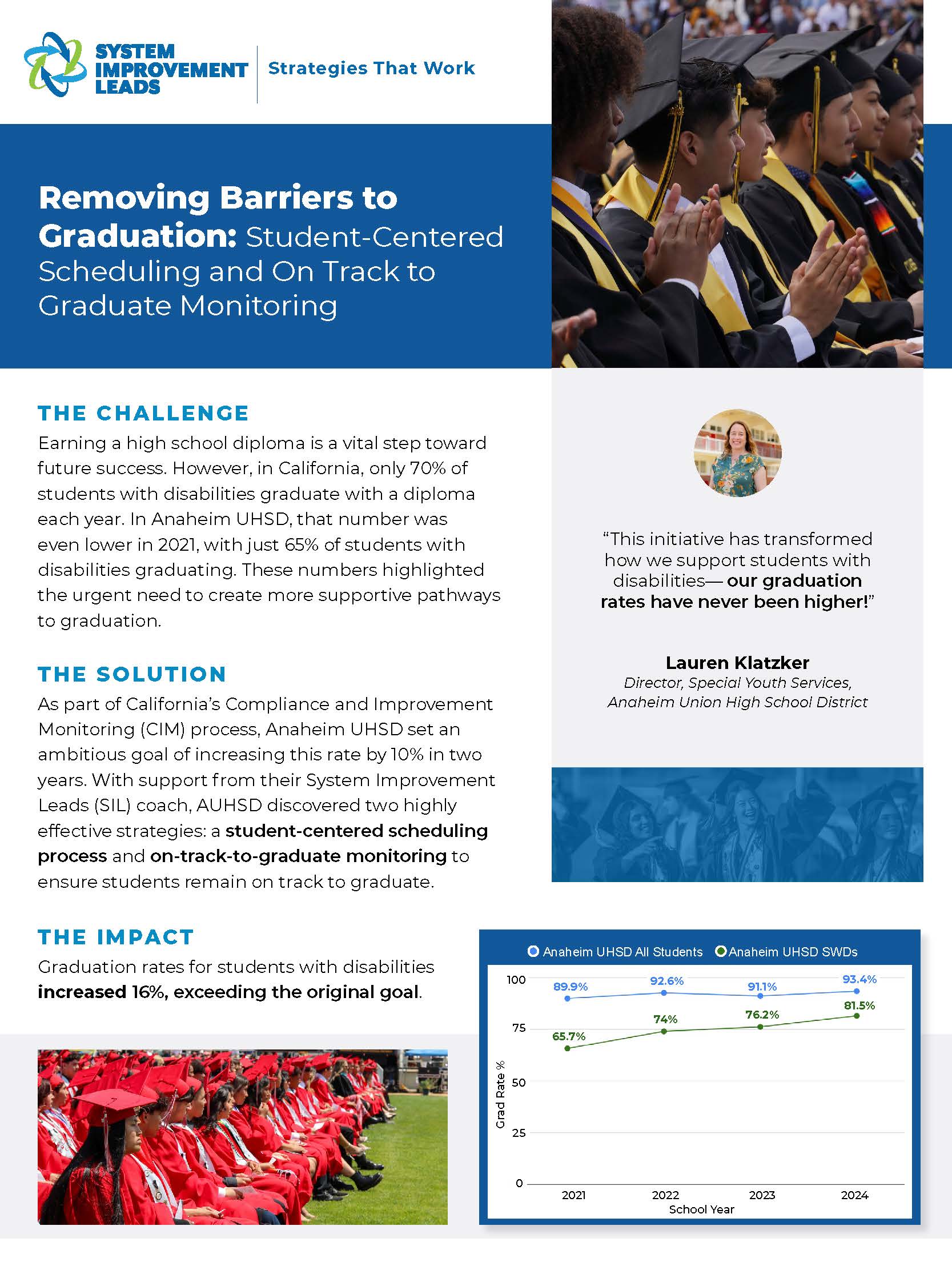
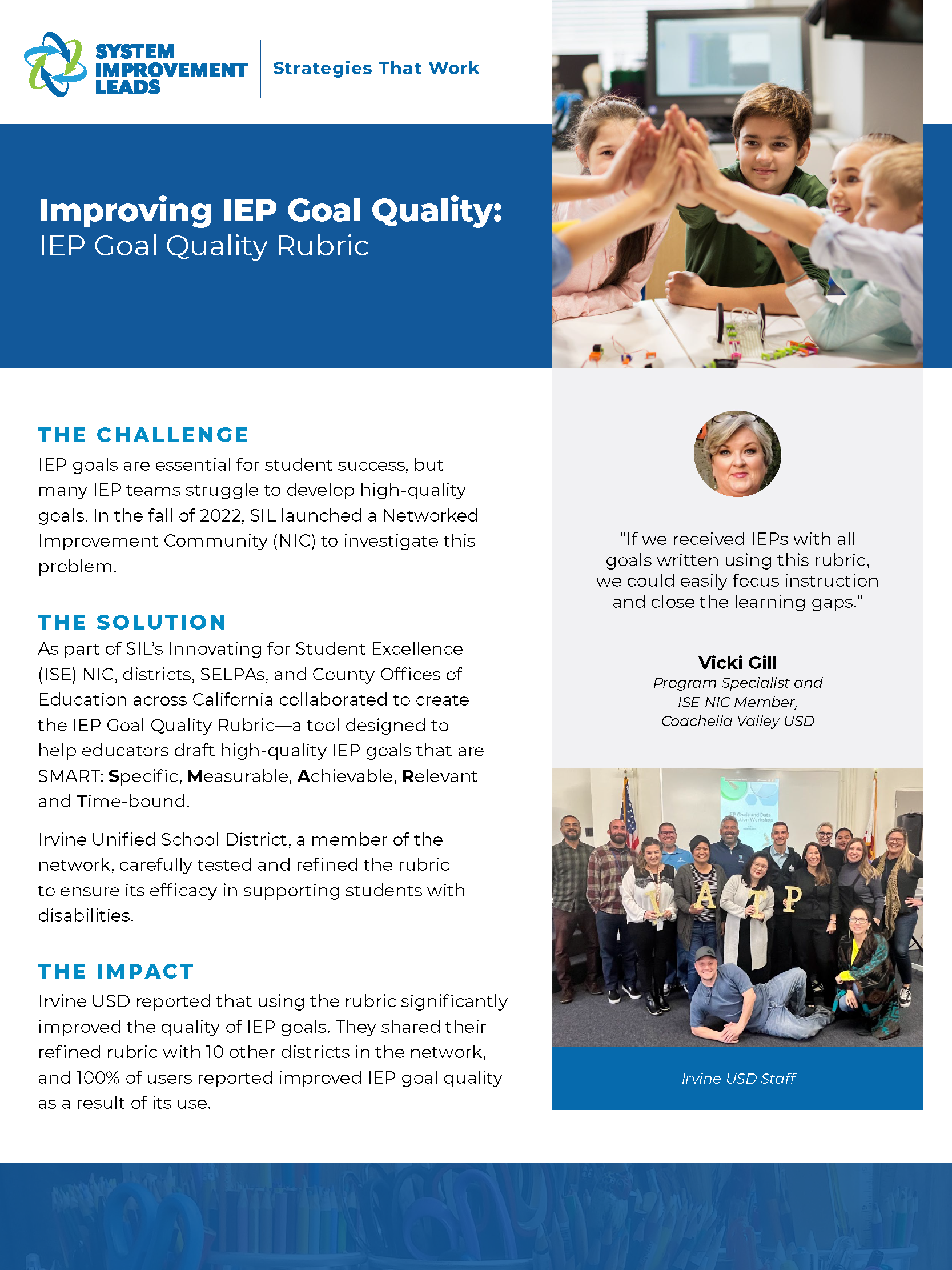
Strategies That Work
Improving IEP Goal Quality: IEP Goal Quality Rubric
Creating high-quality IEP goals is essential for student success, but many teams struggle with clarity and alignment. To address this challenge, the IEP Goal Quality Rubric was developed through collaboration between districts, SELPAs, and County Offices of Education as part of the SIL Innovating for Student Excellence (ISE) Networked Improvement Community. Refined through rigorous testing by Irvine Unified School District, this tool helps educators draft IEP goals that are Specific, Measurable, Achievable, Relevant, and Time-bound (SMART). Districts using the rubric saw a 20% increase in IEP goal attainment, with improved alignment between goals, instruction, and student progress. Click here to access the IEP Goal Quality Rubric.
State Performance Plan Indicator (SPPI) Guide
The SPPI Guide provides convenient access to information on the California State Performance Plan Indicators. This resource includes a collection of individual handouts for each of the 14 State Performance Plan indicators reported in the local-level Annual Performance Report (APR). Each handout will outline the essential elements of the specified indicator including definition, data source, calculation, targets, and connections to related processes. The goal of this guide is to support school leaders in analyzing the wide range of valuable data provided within the APR in order to improve the quality of education for all students, with an emphasis on students with disabilities.
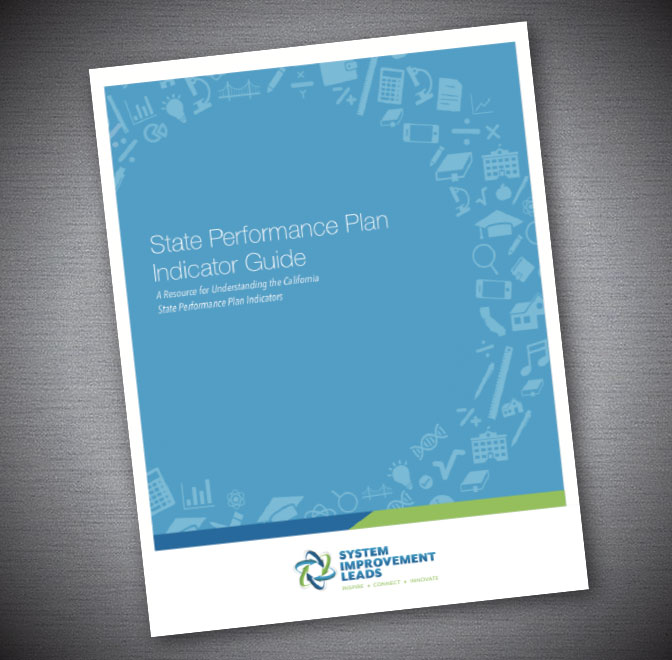
A Different Way to Lead: System Improvement Leads Networked Improvement Community (SIL NIC)
In most organizations, leaders are considered the experts. They come up with solutions to problems and ask their employees to implement them. However, this style of leadership no longer meets the complexity and fast-paced nature of today’s world. Instead, leaders must create learning environments that draw on the expertise of everyone in their organizations and value learning through experimentation and failure.
Introducing the State Performance Plan Indicator Modules
The SPPI Modules are intended to provide easy access to information about the California State Performance Plan Indicators. Each module in the series outlines the essential elements of the specified indicator including definition, data source, calculation, targets, and connections to related processes. The series has been designed to increase educator understanding of how the SPP indicators are developed and how they apply in a local context so that this information can be leveraged when working to improve outcomes for students. To check out the SPPI Modules, please click the link to our Online Learning Center, and look under the Data Literacy tab.
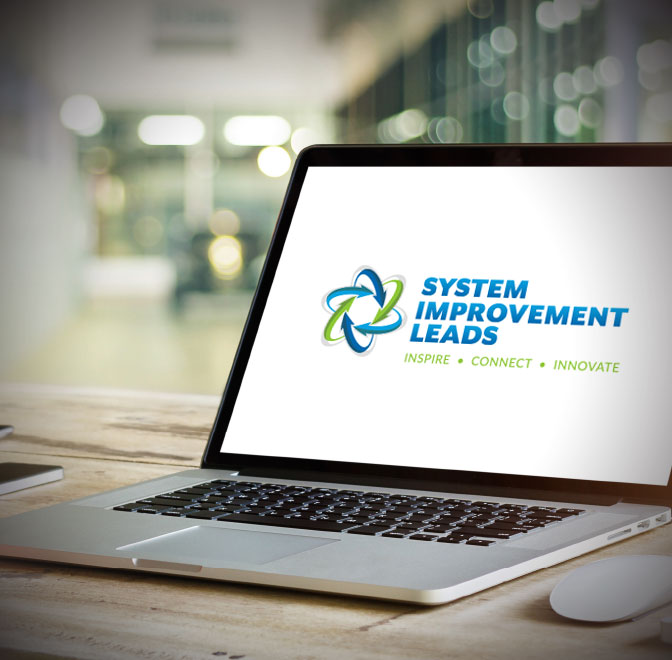
Root Cause Analysis Inquiry Guide
Special Education Common Problems of Practice
The Root Cause Analysis Inquiry Guide Special Education Common Problems of Practice Edition is designed to support teams in conducting rigorous root cause analysis investigations that incorporate qualitative and quantitative data. The intention of this guide is to support school teams in identifying the primary causes behind problems in their educational systems, with the ultimate goal of successfully addressing system issues and improving outcomes for students.
SEL Simplified for Streamlined Success
Supporting SEL through connected practices is a helpful and easy to use resource aimed at connecting educators with aligned practices to support their students' social emotional learning. This resource highlights the interconnectivity of High Leverage Practices (HLPs), Universal Design for Learning (UDL), California Standards for the Teaching Profession (CSTP), and the Collaborative for Academic, Social, and Emotional Learning (CASEL) in supporting Social Emotional Learning.

Tools to Support Root Cause Analysis
These resources are designed to support the process of root cause analysis and range from supports for effective meetings to summarizing and planning.
Tools to Support Root Cause Analysis
These resources are designed to support the process of root cause analysis and range from supports for effective meetings to summarizing and planning.


Facilitators Toolkit
The facilitator’s toolkit contains protocols to support improvement conversations and meetings. This set includes protocols to facilitate consensus building, problem solving, teaming and synthesizing.
Facilitators Toolkit
The facilitator’s toolkit contains protocols to support improvement conversations and meetings. This set includes protocols to facilitate consensus building, problem solving, teaming and synthesizing.
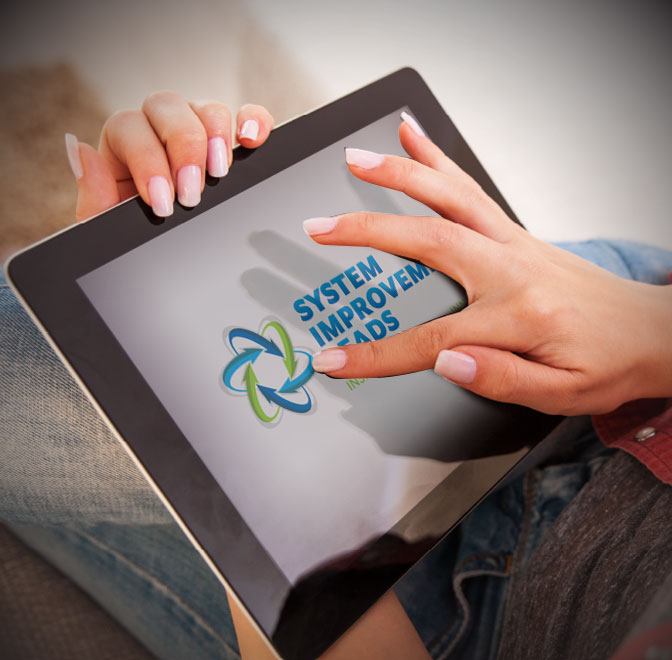
Plan-Do-Study-Act... to Reopen Schools Effectively
Just over a year since the global pandemic of COVID-19 forced school closures across the country, California is working hard to reopen. The challenge of meeting student needs while maintaining safety protocols, and getting it all done rapidly, is a daunting task for administrators and teachers alike. In many ways, reopening feels like just as much of a crisis in managing our education system as the transition to virtual learning environments did one year ago.
High Leverage Practices: Improving Outcomes for Students with Disabilities
Building on the work of The Council for Exceptional Children (CEC) and Collaboration for Effective Educator Development, Accountability, and Reform (CEEDAR), the System Improvement Leads have developed a resource highlighting the basic definition, criteria, and key components of High Leverage Practices (HLPs). This document outlines the 22 HLPs that are organized around the four aspects of practice: collaboration, assessment, social/emotional/behavioral, and instruction. This resource promotes the implementation of HLPs to support students with disabilities in various school settings and across all tiers of intervention and instruction.

Improvement in Times of Crisis
Brandon Bennett, a Senior Fellow at the Carnegie Foundation for Improvement Science, describes the challenge educational leaders are faced with in responding to the COVID-19 crisis. Bennett suggests that educational leaders can use improvement science to manage their systems and pivot toward rapid learning. The utilization of Plan-Do-Study-Act (PDSA) cycles to test out and gain information can allow for a focus on investing in new resources or maintaining existing ones in order to meet the emerging needs in our current reality.
Distance Learning Resources
Distance Learning Resources for Parents and Educators
Access to video modules, slide decks, and documents to provide parents/guardians and educators with resources and supports for distance learning environments.

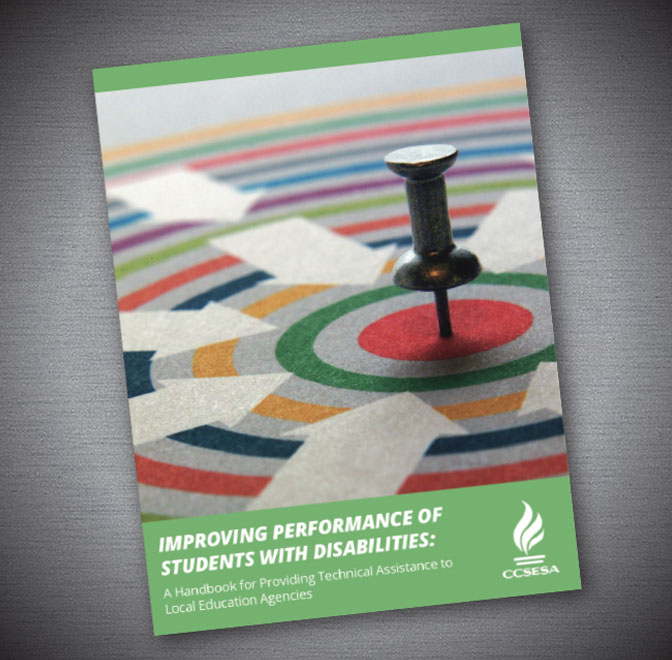
Improving Performance of Students with Disabilities Handbook
A Handbook for Providing Technical Assistance to Local Education Agencies
The handbook is divided into four sections. Section One provides an overview of the key components of California’s accountability system with implications for Students with Disabilities (SWDs). Section Two includes background information on California’s Students with Disabilities. Models and frameworks for supporting SWDs are explored including Multi-Tiered System of Supports (MTSS), Universal Design for Learning (UDL), and Evidence-Based Practices (EBPs). Section Three offers specific guidance for developing leadership teams that use data to monitor progress, identify interventions, and adapt instructional practices and behavioral supports to promote success for all students. Section Four provides a toolkit that includes rubrics, templates, tools, and links to a variety of resources that support the technical assistance and guidance strategies presented.
Improving Performance of Students with Disabilities Web Modules
Web Modules for Providing Technical Assistance to Local Education Agencies
The Improving Performance of Students with Disabilities web modules are designed to provide a foundation for improving outcomes for students with disabilities. The modules are aligned with the Improving Performance of Students with Disabilities Handbook and provide: (1) an overview of California’s accountability system and the implications for students with disabilities, (2) background information on California’s students with disabilities and evidence-based practices within a multi-tiered system of supports, (3) guidance for developing leadership teams that use data to monitor progress, identify interventions, and adapt instructional practices and behavioral supports to promote success for all students, and (4) a toolkit that includes rubrics, templates, tools, and links to a variety of resources that support the technical assistance and guidance strategies presented. The training modules are on-demand and provide users with self-paced access to videos, the Improving Performance of Students with Disabilities Handbook, and handouts.
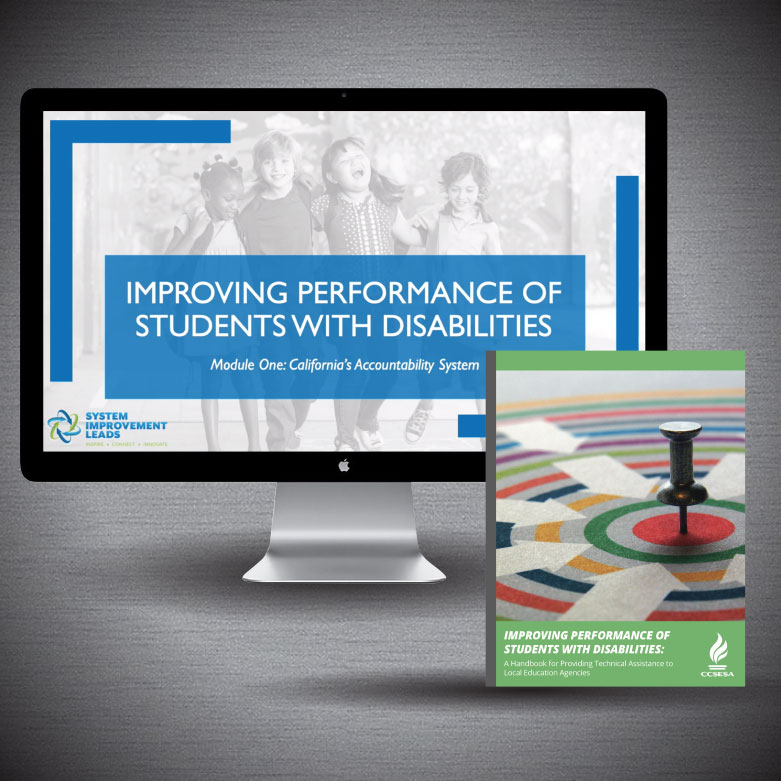
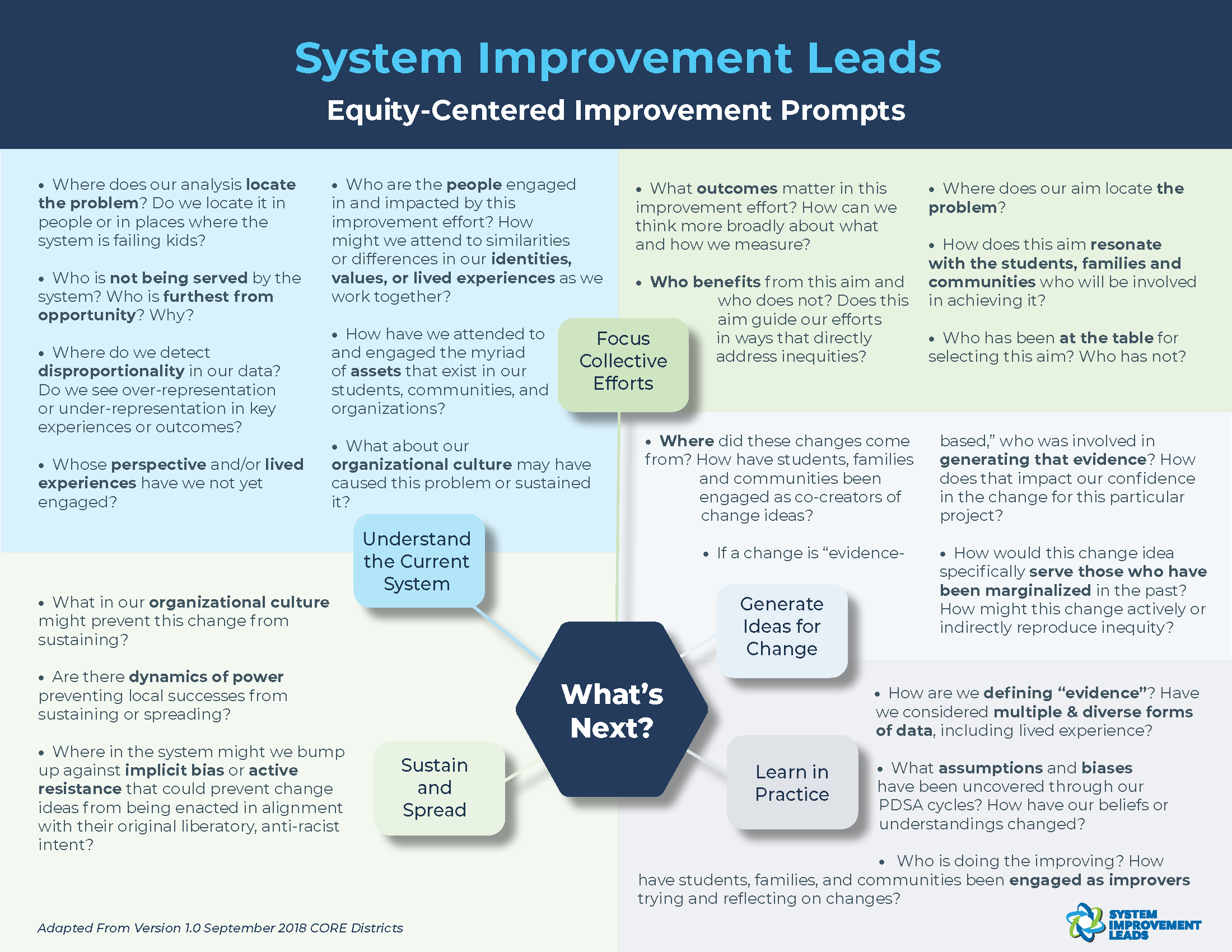
Equity Centered Improvement Prompts
These Equity-Centered Improvement Prompts developed by CORE Districts remind us, through inquiry, to deeply examine our systems with an “equity lens” as we conduct our improvement work. As we move through each phase of the improvement journey, we can use this resource to ensure we are asking questions most likely to lead us toward equitable outcomes.
